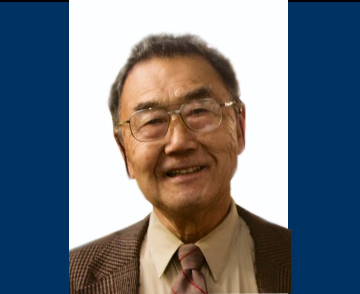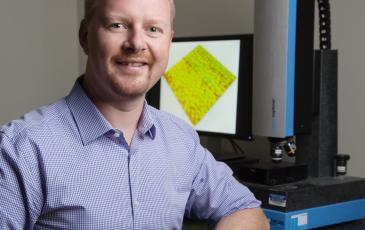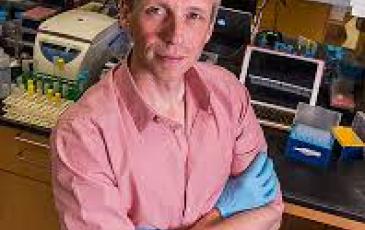Microbial natural products remain an important source of lead compounds for drug discovery. Traditional approaches to microbial natural product discovery take a microbe first approach in which individual strains are cultured in the lab and bioassays used to guide the isolation of active compounds. While once productive, the limitations to this approach are now well documented and include the recognition that only a small percentage of the bacteria present in the environment are readily obtained in culture. We have developed a new approach to microbial natural product discovery in which compounds are isolated directly from the environments in which they are produced thus bypassing the initial need for laboratory cultivation. This culture independent approach, which we call Small Molecule In Situ Resin Capture (SMIRC), is agnostic to the biological source of the compounds and requires no up-front knowledge of cultivation requirements or the cues needed to induce biosynthesis. Initial SMIRC deployments have yielded extensive, biome specific chemical diversity including compounds previously reported from marine plants, invertebrates, and bacteria. Mining compounds that could not be identified has yielded unprecedented carbon skeletons and demonstrated that sufficient yields can be obtained for bioactivity testing and NMR-based structure elucidation. These results suggest a path forward to access new chemical space for drug discovery and to address the ecological functions of marine natural products.

A graduate of Cornell, Harry Y. Tsujimoto received his M.S. degree with the late Professor Daniel Arnon and worked closely with him for the next 30 years. He served as a research scientist, technical resource person and mentor to newcomers in the laboratory. He is an author and co-author of many papers published by the Arnon group. In addition to embodying the highest of standards, the Tsujimoto Lecture recognizes someone who exerted a major influence on the field of plant biology or microbiology. Speakers are selected by graduate students in the Department of Plant & Microbial Biology. Learn more about Harry Tsujimoto and Grace Kase and their lasting impact on PMB.
The Tsujimoto Endowed Lecturers
2001 Christine Foyer
2002 Jen Sheen
2002 Kelly Dawe
2003 Rob Martienssen
2004 Massimo Pigliucci
2005 Luca Comai
2007 Craig Pikaard
2007 Brandon Gaut
2009 Elizabeth Arnold
2010 Mary Rumpho
2010 Nicolas Money
2011 Patrick Keeling
2012 Joseph Thornton
2013 Kristin Bilyeu
2014 Joseph P. Noel
2015 Rusty Rodriguez
2016 Benjamin Wolfe
2017 Maria Harrison
2018 Noah Fierer
2019 Christoph Benning
2020 Tim van Opijnen
2021 Joyce Van Eck
2022 Emily Balskus
2023 Andrew Leaky
2024 Paul Jensen
Upcoming Tsujimoto Endowed Lectures
There are no upcoming events, please check back for future listings.
For a schedule of all Plant & Microbial Biology events, seminars, and lectures visit our calendar.
Past Tsujimoto Endowed Lectures
[Tsujimoto Lecture] Phenomics of Stomata and Water Use Efficiency in C4 crops
The Leakey group takes an integrative approach to understanding and improving the water use efficiency of C4 grasses. The talk will highlight recent work in physiology, genomics, genetics, agronomy that exploits new AI-enabled phenotyping techniques.
Tsujimoto Lecture: Deciphering the human gut microbiome with chemistry
Tim Van Opijnen: Tsujimoto Lecture: On the Origin of Personalized Infectious Disease Treatment Strategies by Means of Rapid Detection and Disease Outcome Predictions
"Tim Van Opijnen received his Masters in evolutionary genetics from the University of Amsterdam, and as a graduate student he worked on the evolution of HIV at the Medical School of the University of Amsterdam. As a postdoctoral fellow in the lab of Dr. Andrew Camilli at Tufts University in Boston his interests shifted to bacterial pathogens and systems biology. In January 2013 he started his own...
View video below:
Christoph Benning: Tsujimoto Lecture: Essential Roles of Plant Lipids in Photosynthesis and Plant Resilience
Christoph Benning is the Director of the Michigan State University Plant Research Laboratory and a University Distinguished Professor. He received his Masters at Albert-Ludwigs Universitaet in Germany and his Ph.D. at Michigan State. Research in the Benning laboratory focuses on lipid metabolism in photosynthetic organisms. One area of particular interest is the assembly and maintenance of the...
Noah Fierer: Tsujimoto Lecture: Searching for simplicity amidst the complexity of the soil microbiome
Noah Fierer. The Fierer Lab explores the distribution and roles of microscopic organisms in diverse environments and the relevance of microbes to the health and function of ecosystems, plants, and animals (including humans).
Maria Harrison: Tsujimoto Lecture: Reprogramming root cells for AM symbiosis
Maria Harrison. Most vascular flowering plants are able to form symbiotic associations with arbuscular mycorrhizal (AM) fungi. These associations, named ‘arbuscular mycorrhizas’, develop in the roots, where the fungus colonizes the cortex to access carbon supplied by the plant. The fungal contribution to the symbiosis includes the transfer of mineral nutrients, particularly phosphorus, from the soil to the...
Benjamin Wolfe: Plant and Microbial Biology Tsujimoto Endowed Lecture: "Delicious rot: using fermented foods to dissect microbiome diversity"
Benjamin Wolfe. The Wolfe Lab uses tractable microbial communities from food systems to study the ecological and evolutionary forces that shape microbial diversity. They also use food as a tool for improving microbial literacy through teaching and outreach.
Rusty Rodriguez: Tsujimoto Lecture: Reprograming Plants for Stress Tolerance and Improved Nutrition through Symbiogenics
Rusty Rodriguez. Reprograming Plants for Stress Tolerance and Improved Nutrition through Symbiogenics











